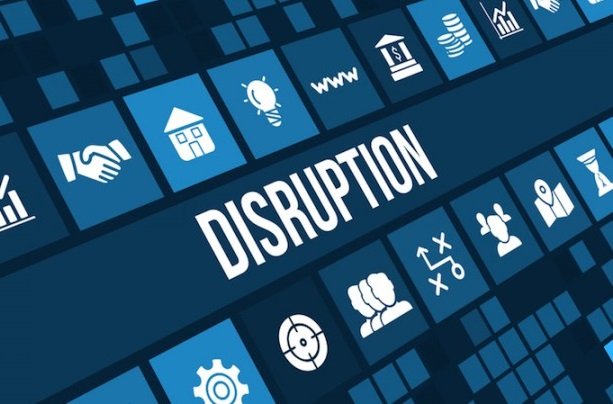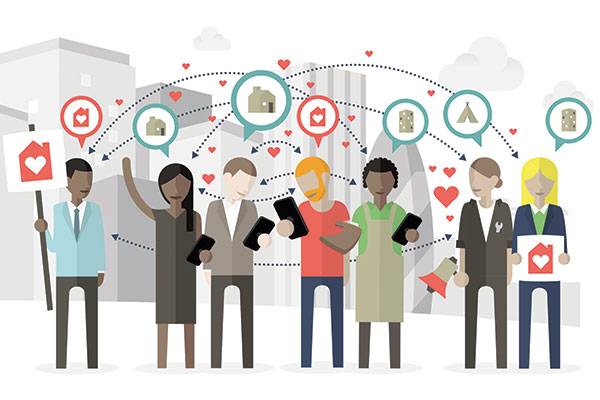Leveraging On Disruptions
HELLO steemians welcome to my blog once again, today i will br taking you on a very important topic
Leveraging On Disruptions
¶ Disruptions is now a regular phenomenon in our world today. The truth is that Disruptions are either going to happen to you or because of you. leveraging on disruptions involves constant adaptation to the world as it constantly changes. Join us as Amb. Faith help us understand how we can leverage on specific disruptions that concerns us._
"Creativity is just connecting things. When you ask creative people how they did something, they feel a little guilty because they didn’t really do it, they just saw something. It seemed obvious to them after a while. That’s because they were able to connect experiences they’ve had and synthesize new things. And the reason they were able to do that was that they’ve had more experiences or they have thought more about their experiences than other people" — Steve Jobs
( image link
image link
Extensive evidence that personal experiences and environmental exposures are embedded biologically (for better or for worse) and the cumulative knowledge of more than four decades of intervention research provide a promising opportunity to mobilize evolving scientific insights to catalyze a new era of more effective early youth age policy and practice.
Before I go far, let's me briefly define leverage...
Leverage is the ability to influence situations or people so that you can control what happens thereby putting it at a steady and profiting proportion.
Leverage is applicable in different means such as; Accounting, Finance, Economical values, Industries, Technology, Science, Ways of Life et so on...
Disruption is simply defined as disturbance or problems that interrupt an event, activity, or process from getting the desired or intended result.
 image source
image source
Am sure we understand that everything evolve from science which is a way of life...
So there is no way science won't be involved.
Decades of scientific advances and practical experience tell us that early youth age is a time of both great promise and considerable risk. Converging evidence from neuroscience, molecular biology, genomics, and epigenetics further indicates that the influence of the early years can extend over a lifetime, as it affects the foundations of learning, behavior, and both physical and mental health. Almost half a century of program evaluation data add extensive evidence to support the additional conclusion that a variety of intervention strategies can improve the life prospects of children who face the burdens of low family income, limited parent education, and social disadvantage—but the magnitude of their measured effects has been variable and the quality of program implementation has been uneven. Science tells us that early experiences are embedded biologically (i.e., “built into our bodies”) for better or for worse—and ongoing advances in the biology of adversity, the science of learning, and the disciplines of intervention research invite us to rethink the traditional modes of interaction among research, policy, and practice in the early youth age arena. To that end, the rapidly moving frontiers of the developmental sciences offer an unprecedented opportunity to leverage knowledge in the service of launching a new era in early youth policy and practice that is committed to achieve substantially greater impacts than current efforts.
Meanwhile, civilization has come in place and having key factors on youth. Yet we refuse to maximise it efficiently...
Now, let's take a look at what adults value
Millennials, or let me say Generation Y or better still our generation, the age group loosely defined as being born between 1980 and 2000, have grown up during a time of technological and economic disruption.
They will be the first generation to be worse off than their parents, yet they are still expected to pick up the tab for the planet’s problems, including an ageing population, global debt and climate change.
But it’s not all doom and gloom – in many ways young people will inherit a better world , one with less poverty, increased access to health care and education and huge technological possibilities.
They are also the first generation of digital natives - many do not remember life without the internet.
Their affinity with the technologies that have brought us to the edge of the Fourth Industrial Revolution sets them apart from previous generations.
Technology has not only shaped the way they live and work, but also created a whole new set of beliefs, fears and aspirations. These values, in turn, will affect their approach to the global challenges and opportunities that lie ahead.
so tech has its good and bad sides. As it speak smile on our faces so it speak fear, but we have to choose right.
A question to be answered here please...
*Can we say if the then generations happen to enjoy the kind of Technology and civilisation we are enjoying now, would they have utilize it more than we do?
I doubt, they would have only done as much as that age and century permitted them. But when we take a look at their inclination then, who will be of better advantage?
Do young people want to change the world?
Millennials do want to make the world a better place – 84% consider it their duty, according to a report from Deloitte. But they are doing it differently to older generations in three ways.
- They will work within existing systems. Over 90% believe that business is the way to solve problems like unemployment, the Deloitte study found. And three-quarters think governments should address society’s challenges.
- They have the tools to act(Tech). In a digitally connected world, social media platforms enable young people to promote causes and hold institutions to account directly.
- They make doing good part of their lifestyle. This includes the careers they choose, the products they buy and how they spend their free time. Though spending free times has not been much utilized to my satisfaction.
To point number1, we shouldn't wait for Government to do it for us, we should let our strength count as well.
But in career, youths still find it difficult choosing. Deep lections experiences are needed.
Now let's take a look at The Influence of Social Settings on Youth Development
The study panel that produced the 1993 National Research Council (NRC) report Losing Generations concluded that communities and institutions that surround adolescents, which include families, neighborhoods, schools, health systems, and employment and training centers, are increasingly challenged by changing social and economic conditions within the larger society.
These conditions include the decline in economic security for poor and middle-class families, the increase in the number of single-parent households, and the rise in the number of neighborhoods with concentrated poverty that are spatially and socially isolated from middle-and working-class areas. Such trends place enormous stresses on public and private institutions and resources at a time when large numbers of children are entering adolescence.
Over the past two decades, as the major settings of adolescent life have become increasingly beleaguered, the NRC panel observed that "increasing numbers of youths are falling into the juvenile justice system, the child welfare system, and other even more problematic settings"
But understanding and demonstrating the impact of social settings on youth development are difficult tasks that require theory-building and instrumentation.
Neighborhood characteristics are increasingly viewed as part of the broader range of influences that can affect adolescents, although the magnitude of their impact is uncertain and difficult to measure. Characteristics that may influence youth development include;
*the decline in economic security (including decreasing real earnings and rising levels of unemployment), especially for young adults;
*the increase in single-parent, usually female-headed, families;
*the relation of male joblessness to social disorganization and rational planning for families and youth;
easy access to illegal drugs and guns;
*rising rates of youth crime and juvenile detention; and
*the role of illegal or underground economies in providing for basic goods and services.
These contextual factors contribute to the absence of adult supervision and monitoring, a dearth of safe places to gather, the absence of constructive activities during idle periods, increased exposure to law enforcement and prison settings, and diminished opportunities for interaction between disadvantaged youth and middle- or upper-class professionals who can provide positive role models and institutional resources.
What are the role of the youth in developing a country?
*Youth people are the energized group bubbling with enthusiasm. And one's potential can be utilized fully during their youth. If this enthusiasm and ideas are regulated and utilized in a proper way, then the youth can create a revolution which will shape the world in a positive way. For Eg. Bill Gates who bought his idea into practicality and formed Microsoft in his youth.
 source
source
*Nowadays there are many young people who volunteer in NGOs for the upliftment of some neglected subjects.
*Youth people must be given a suitable platform to showcase and utilize their talent and intellect. There are many youth who have brilliant business ideas which would create employment, but could not fulfill because of some limitations like lack of social and financial support. If given these facilities, they could drive the economy of the nation.
The “main” role of youths in developing their country is to reinvent and improve themselves so that they can provide to said country, making it a better place than when they were youths. Likewise, it is one thing to develop a country but it is another thing to maintain and improve it. They sometimes have to take risks, put themselves in situations and points of view that are not their own, have compassion and a sense of selflessness. Getting involved in their environment — whether that is their town, city, village, district, etc.
In conclusion, we have to make use of the measures at hand to mould that desired goals out of us.
Be it family barriers or whatsoever mustn't take change of our actions and thoughts, with this we gonna attain the peak of our success......
thanks for having me.. catch me next time am your block chain friend @sammyswt
Go to @bible.com
Go to @bible.com
Hello! I find your post valuable for the wafrica community! Thanks for the great post! @wafrica is now following you! ALWAYs follow @wafrica and use the wafrica tag!